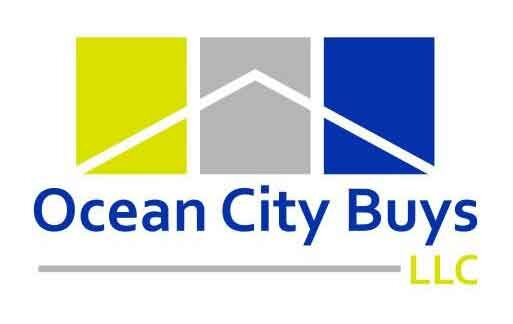It’s a wild market out there! Listing your home can be stressful. Between Realtor/real estate agent fees, market unpredictability, legal requirements and costs, and the chaos of strangers wandering through your home, it’s enough to drive anyone batty. Selling your house quickly and for a reasonable price is a tricky balance to navigate.
It can be stressful if you’re trying to sell your house in Connecticut after a brief period of ownership. You may receive advice from well-meaning friends and family about how or when to sell one of your largest assets. However, we are here to provide reassurance and a clear explanation regarding home sales after a short ownership period in the local market and how to make it work for you.
In this article, we’ll be walking you through the listing process, costs associated with home sales, taxes, breakeven targets, and teaching you how to determine whether or not a home sale after a year is worth it.
Read on below to become an informed seller and use our knowledge to your benefit! Answer your own question: ‘Can I sell my house after 1 year?’

How to Sell Your House After 1 Year in Connecticut
If you’re looking to sell your house shortly after purchasing, you’re in the right place. First, find out how much equity you have in your home. If you had a mortgage with a short-term (say, a 15-year mortgage versus a 25-year mortgage), you may have more equity in your house than you thought. Equity is the amount you have paid on the balance of your mortgage.
For example, if you have $10,000 equity on a $100,000 home, you will take home less money after your sale than if you had $20,000 equity.
Costs of Selling Your House After a Year in Connecticut
There are a variety of costs when selling your house – legal fees, taxes, and commissions apply to nearly every home sale. We will explore these in the “Closing Costs When Selling a Home” section below. But some costs only apply if you haven’t owned your house for very long.
You may encounter a mortgage prepayment penalty. Some mortgages allow the seller to “port” their mortgage to a new home, avoiding this fee. However, some lenders/banks charge a prepayment penalty if you sell your home shortly after buying.
Be sure to check your mortgage agreement to ensure you won’t take too much of a fee. Lenders charge this fee in an attempt to reduce the loss of the interest they would have been paid if you had kept your mortgage for the full period.
When considering a prepayment penalty, always check with your lending institution to ensure that your fees are as expected and not much higher. A prepayment penalty could be a portion of your remaining loan balance, a portion of owed interest, or a flat rate. This may also apply if you have recently renewed or refinanced your mortgage. That is true even if you’ve lived in the home for a long time.
Property Selling Taxes
There are many ways to avoid paying capital gains taxes on your home when you sell it at a profit. It’s best to check with your Realtor or real estate agent for clarification regarding your situation. You can save thousands when working with a professional who knows tax law.
Capital Gains Tax
One of the more annoying concerns you may have when selling your home is capital gains tax. Capital gains tax is a tax placed on the increased value of an asset. Some assets that are subject to capital gains tax include cryptocurrency, stocks, real estate, and businesses.
Don’t panic! You pay capital gains tax on profit from the sale, not the entire sale. For example, if you sell a home you bought for $200,00 at $250,000 after fees, you only pay capital gains tax on $50,000 – not the entire purchase price.
All states have varying capital gains tax rates – be sure to check with the IRS for an accurate amount for your situation and location. Connecticut has a capital gains tax of 7%. This applies to long-term and short-term capital gains.
There are exemptions to the capital gains tax for single homeowners and married couples. Always check with a tax professional or Realtor/real estate agent for guidance.
The Breakeven Target
It may be in your best interests, depending on your situation, to sell the house regardless of profit or selling price. The home in question may be more of a liability than an asset. However, in most cases, home sellers are hoping to “break even.”
The breakeven target is typically the first financial goal you set for your home – you ideally want your house to bring in enough income to cover all associated fees, costs, and taxes. For example, if you produced a widget that cost $5 to manufacture and sold it for $5, your breakeven target would be met. You wouldn’t walk away from the sale with any profit, but you wouldn’t be out any money either.
When selling a house, the principle of the breakeven target is the same, only much larger. Instead of selling a widget for $5, you’re selling your primary residence for possibly hundreds of thousands.
Choose an asking price that will comfortably cover all closing costs and additional applicable taxes and commissions to avoid disappointment once your house is on the market. Keep in mind the amount you may need for a down payment on your next home purchase as well.
Closing Costs When Selling a House
When homeowners sell, closing expenses may total up to 8%-10% of the sale price. The seller is generally expected to pay both the selling agent’s commission and some (if not all) of the buyer’s agent’s commission. Commission alone totals 5%-6% of the sale price. If you’re familiar with the process or willing to learn, you can sell a home by owner to reduce your commission fees.
As an example: if you sell a $400,000 home, your closing costs can range from $18,000 to $40,000.
The most common closing costs include:
- Realtor/agent commissions
- Title insurance
- Escrow fees
- Transfer and/or excise tax
- Property taxes (prorated)
- HOA fees (prorated)
- Attorney/legal fees

Is it Worthwhile to Sell a House After 1 Year in the First Place?
Many contributing factors will influence your decision to sell your home. It’s important to do what’s best for your financial and personal situation. What worked for your friend, coworker, or family member may not be the best choice for you.
If and when you decide to sell your house, be sure to consider market appreciation, current interest rates, affordability, and forced appreciation (if applicable).
Market Appreciation
In the case of a housing market “boom,” it is likely that the house that you paid, say, $200,000 for a year ago might now sell for upwards of $300,000. If you find yourself in this situation, you may find that the closing costs and associated fees and taxes don’t matter as much because you know you’ll be turning a nice profit on your home.
You Can’t Afford to Keep Your Home
There are many reasons why you might sell a house after 1 year. Needing to sell your house after a year may be the best option for you for many reasons. Perhaps:
- Job relocation: keeping your house and attempting to be a landlord from afar is not as easy as it seems and certainly isn’t for everyone. In the case of a job relocation or a new job, a homeowner often does not have much of a choice to sell their home.
- The house you want to sell is a future money pit: maybe your house was in great shape, but after living and learning about your home, you may have realized that it needs (or will need) extensive work soon. It might be in your best interests to sell as soon as possible.
- Your financial situation has changed: a job change, personal emergency, or unforeseen financial circumstance may have drastically affected how much you can afford to spend on housing and mortgage payments.
House Flipping has Forced Appreciation
If the home you’re looking to sell is a home that you flipped, you may be in luck! Flipping a home, or the process of buying a low-value home in need of work (whether extensive or cosmetic), doing a remodel, and selling for a higher price, is a popular way to use the real estate market to your advantage.
House flipping is a popular way to increase the value of an investment property. If you’re a flipper, you can increase the value of your home by reducing expenses and increasing curb appeal.
Because your home has forced appreciation (a potential value that increased as a result of renovations, repairs, or something you have done) as opposed to natural appreciation (value as a result of the market), you can list your home well above the market value of the home when you purchased it.
Going Forward
When you’re considering selling your house after one year in Connecticut, there are many factors to consider. We’ve looked at many and have given you a lot of information to help you make your decision.
You may choose to look at companies that buy houses in Hartford or cash home buyers in Bristol who might be able to reduce your home’s time on the market and closing fees.
We are confident that given the information in this article, you will be able to make the right decision for your financial and personal situation to turn your biggest investment into a strategic financial choice.
